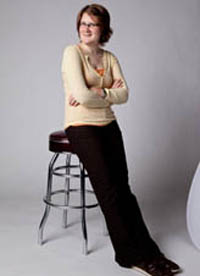Page 129 • (6,902 results in 0.07 seconds)
-
Learning Outcomes for the Gender, Sexuality and Race Studies MajorStudents who take Gender, Sexuality, and Race Studies courses at PLU will learn how to: Understand the social construction of gender, sexuality, and race. Analyze systems of privilege and oppression. Assess the intersectional relationship between knowledge production, identities, and power. Communicate and collaborate across differences. Practice community-engaged scholarship and coalition building. Engage in critical imagining
-

ethics, social responsibility, and conscientious practice.” The program’s student learning outcomes will foster critical thinking, communication, and practical use of math and stats. Students will excel in data through projects, fostering innovation and adaptive problem-solving. The U.S. Bureau of Labor Statistics forecasts a 35 percent growth in data science jobs from 2022 to 2032, outpacing the average for all other fields. With approximately 17,700 annual openings for data scientists projected
-
undergraduate GPA, GPA in the 10 required prerequisite courses, and GPA in the last 60 credits taken. PNWU-SOT will also waive the $50 application fee for these PLU applicants.Doctor of Physical Therapy (DPT)Pacific Northwest University of Health Sciences DPT program’s curriculum emphasizes a rural-focused curriculum consisting of didactics, labs, simulated experiential learning, full-time clinical experiences, community-based service-learning projects, and a culminating capstone project. Students have an
-
studies using eye-tracking, individual difference measures, and event-related potentials that we have done to better understand the nature of this variability. Results are discussed in the terms of how attentional and inhibitory processes may underlie fixation duration differences.The social self, the biological self: how biological phenotype and social behavior can inform one another.Melvin Rouse, Ph.D. Associate Professor, University of Puget Sound November 3, 2023, 2-3pm, Xavier 201 Songbirds have
-
context of the liberal arts tradition. The CS Department educates students with the technical skills to be effective and capable software developers, while the General Education curriculum provides them with exposure to broader questions, ideals, principles of diversity, inclusion, social justice, and sustainability, and values of Lutheran Higher Education. We are also moving toward a stronger ethics component in our CS curriculum and have submitted grants with colleagues across campus to support
-
interest for committees (March) Nominations (Mar-April) Campus Vote (April-May) Service (August-May – 3 year terms) Eight faculty-created standing committees currently exist: Academic Performance and Integrity Core Curriculum Educational Policies Faculty Affairs Global Education Governance Instructional Resources Rank and Tenure Committee Service OpportunitiesThe following are non-elected committee opportunities: Interdisciplinary Program Committees Chinese Studies Environmental Studies Global Studies
-
architecture, and Christian rituals. He has taught in PLU’s International Honors Program and has led student and regent study tours in Rome and central Italy. PLU Faculty ProfileSince 2005, he has led faculty, staff, and student workshops on the liberal arts and higher education, published extensively on the origins, development, and gifts of Lutheran higher education, and represented PLU at international conferences in ritual studies and reformation studies. Dr. Torvend served as the first University
-

studies; and even as a technical writer for Microsoft! Graduates from the last 5 years: Their jobs Public Health Preparedness Fellow, Centers for Disease Control and Prevention Legal Intern, Office of the New York State Attorney General Tax Associate, Grant Thornton LLP Recruiter, American Workforce Group, Inc. Research and Development Software Engineer, Microsoft Graduates from the last last 5 years: Their graduate programs Master’s in Global Health, Duke University Law School, Gonzaga University
-

she never considered before. She asked herself an essential question: How do normal people apply social justice to their everyday lives and jobs? She had prepared thoroughly to become a medical doctor. Even though her passion wasn’t gone, something was changing. Thiele participated in a summer undergraduate research project with Mary Ellard-Ivey, associate professor of biology. They worked to create better plant development in third-world countries. She never thought about working with plants, but
-
year 2.5 semester and cumulative GPA and good academic and disciplinary standing Believe in social justice and commit to promoting DJS and eliminating sexism, racism, cissexism, heterosexism, ableism, xenophobia and all forms of oppression. Express curiosity and commitment in continuing their own leadership development and identity formation Desire to be a peer mentor Experience or willing to learn project management Experience working as a member of diverse teams. Operates with a commitment to
Do you have any feedback for us? If so, feel free to use our Feedback Form.


